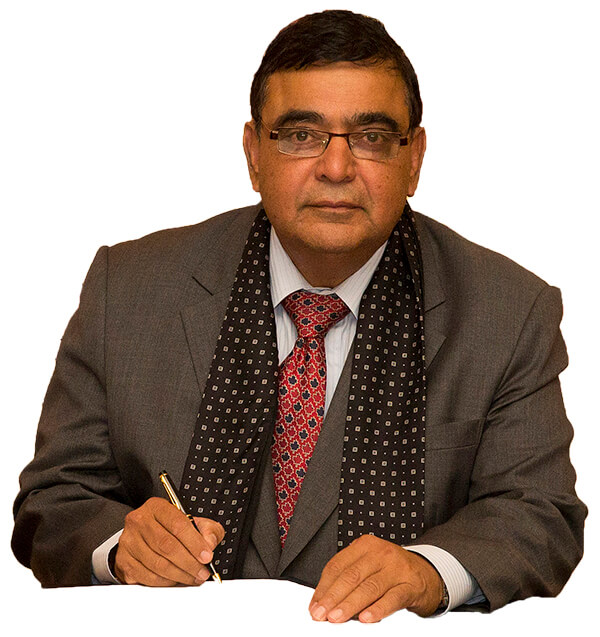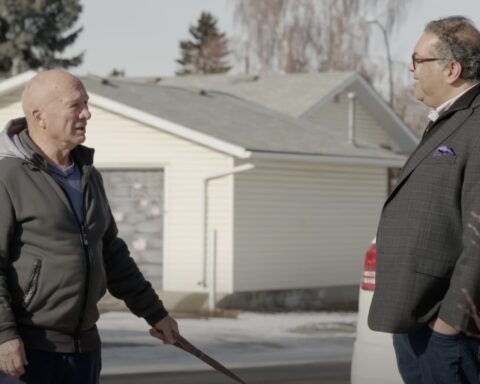Deepak Obhrai, Conservative Member of Parliament (MP) for Calgary East and Parliamentary Secretary to the Minister of Foreign Affairs and for International Human Rights, has reason to be optimistic about the future – or at least his own political future.
Just a few weeks ago, June 2 marked 18 years since he was first elected, making him the longest-serving visible minority MP in the 41st Parliament of Canada.
Born in Tanzania to South Asian parents, Obhrai immigrated to Canada at the age of 27, and 20 years later, contested his first election in 1997. Re-elected five more times since then, he remains unfazed by the crushing defeat of the Conservative party by the NDP in the May 4 provincial election in his home territory of Alberta.
This was when the proverbial ‘orange wave’ swept over the heartland of conservative Canada, ending 44 continuous years with the Tories in power and defeating the longest-serving party in provincial politics.
In the early days after this historic defeat, Obhrai conceded that this could be a game-changer and that safe (Conservative) seats could no longer be considered safe.
“In Alberta, the people were extremely tired of the culture of entitlement that the Tories came to have. They turned to the NDP because there was no alternative.” – Deepak Obhrai
But in a recent interview with New Canadian Media, Obhrai said he had no doubts about his own prospects. Although Tory stalwarts such as John Baird and Peter MacKay have opted out of the race, Obhrai is determined to run again and win the newly created riding of Calgary Forest Lawn.
“I was nominated (as the Conservative candidate) in January,” he said. “Nobody came forward to challenge me, even though it was an open nomination.”
Asked about the secret of his longevity and his positive attitude to the future when others are contemplating their political mortality, he said, “I have the confidence of the people and the party in my riding.”
On the Orange Wave
“In Alberta, the people were extremely tired of the culture of entitlement that the Tories came to have,” he said. “They turned to the NDP because there was no alternative. It’s not that they necessarily agreed with the policies of the NDP, but they wanted to send a message to the ruling party.”
How might the federal Tories ensure that the same thing does not happen in the upcoming election?
“We need to make sure that we don’t upset the people,” he said.
About Bill S-7 – entitled “Zero Tolerance for Barbaric Cultural Practices Act” and heavily criticized by ethnic minority groups as pointing fingers at certain cultures – Obhrai said that it did not target any specific culture or ethnic group.
Obhrai insisted that certain controversial bills passed by the current government had the support of the people of Canada and were not upsetting to the majority.
“It’s the left-leaning media making a noise,” he said, when asked specifically about Bill C-51, for which he and the majority of parliamentarians voted.
“We need to combat new threats that are happening today and we need new tools for this,” he said in defence of this bill.
About Bill S-7 – entitled “Zero Tolerance for Barbaric Cultural Practices Act” and heavily criticized by ethnic minority groups as pointing fingers at certain cultures – Obhrai said that it did not target any specific culture or ethnic group.
“It’s restoring the human rights of all individuals and applies to all Canadians.”
 On Criticism of Harper’s Foreign Policies
On Criticism of Harper’s Foreign Policies
Obhrai is reputed to be one of the architects of Canada’s foreign policy. In 2013, Embassy, an Ottawa-based newsweekly, named him one of the top people influencing Canadian foreign policy. He is quick to dismiss criticism of the Harper government’s foreign policy from media and opposition critics.
“Trade trumps everything,” wrote John Ibbitson of the Globe and Mail in an article dated January 31, 2014, adding that the Canadian International Development Agency (CIDA) has been folded back into Department of International Affairs, Trade and Development (DFATD) to implement this new economic diplomacy.
Obhrai says the humanitarian element has not been smothered and that merging CIDA into DFATD is a matter of better coordination between the two.
“We gave generously to Nepal,” he pointed out, referring to the recent devastating earthquake in South Asia.
He also claimed that by focusing on 25 countries, rather than spreading Canada’s development assistance too thin, it delivers better results to those in greatest need.
On His Ethnic Background
Although Obhrai takes obvious pride in the fact that he is the longest-serving visible minority MP in the current government, he is quick to point out that he represents all people regardless of their ethnic origin.
Still, his ethnicity and cultural background have had some impact on his political career.
For starters, his interest in running for political interest was sparked because of his background in community work.
Obhrai was the first parliamentarian in Canadian history to take his oath of office on the Bhagavad Gita, the Hindu scripture, instead of the Bible.
His riding, Calgary East, has a mixed population, with a sizeable visible minority component.
“I started at the grassroots level and from there I built a base of support,” he said, referring to his work in such organizations as the India-Canada Association of Calgary.
A significant landmark of his career was when he was sworn in as a member of the Privy Council on September 19, 2013. This is an elite status conferred on the inner circle of cabinet ministers and entitles the recipient to use the title ‘Honourable’ and retain the initials PC after one’s name for life. Obhrai was the first parliamentarian in Canadian history to take his oath of office on the Bhagavad Gita, the Hindu scripture, instead of the Bible.
His immediate family consists of his wife Neena, who is president of the Hindu Society of Calgary, three adult children Preeti, Kaajal and Aman and two grandchildren, all of whom he looks forward to sharing his adventures on the campaign trail with.
What does his extended family think of his achievements? “I have extended family in Tanzania, Kenya, India and the U.K. and they are in awe of what I do,” he said, with a smile.
Ottawa-based writer/journalist, editor, blogger, communications professional seeking freelance opportunities in political and travel writing.





